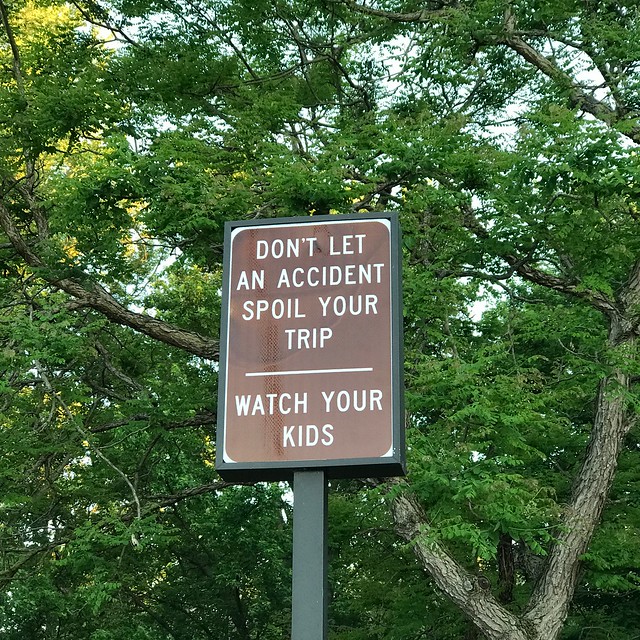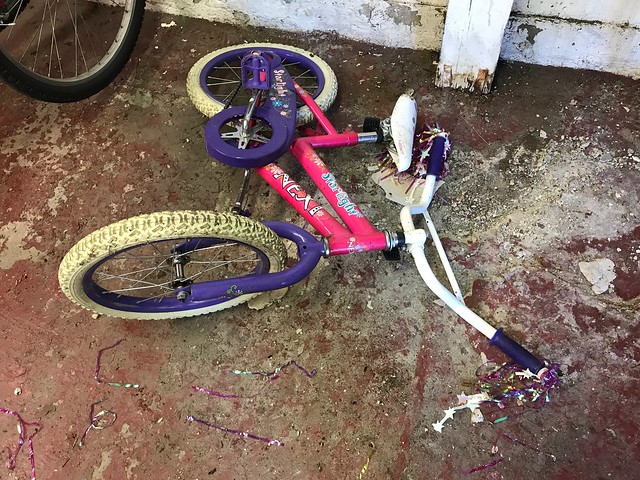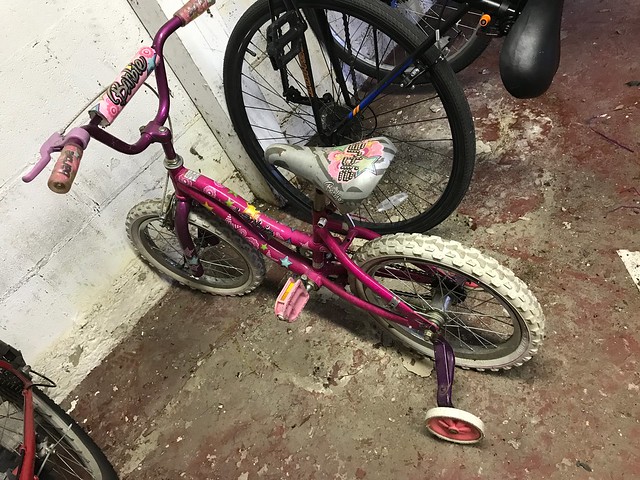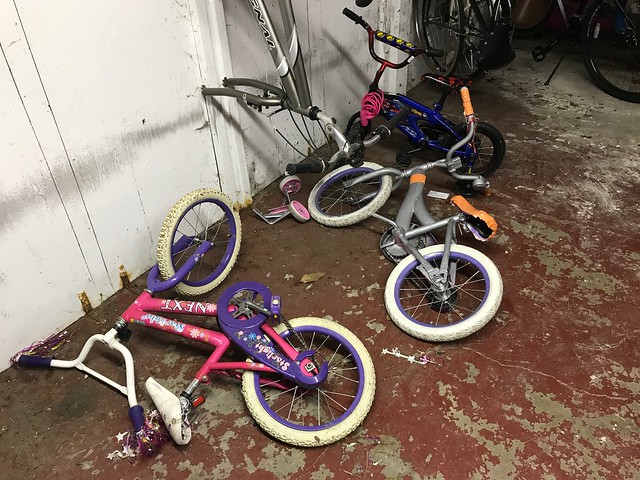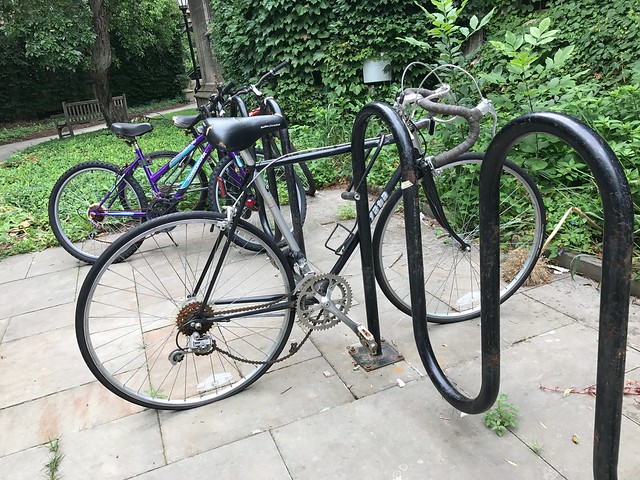In the United States you don’t have to go far to see a sign. Signs are everywhere. We have directional signs. Commercial signs. Warning signs. Not permitted signs. Educational signs. Monument signs. Signs tacked onto other signs. Confusing signs. Signs meant to clarify other signs. We even have doors, walls, and sides of buildings transformed into signs. If Saturnian neighbors were to descend upon Earth, they might note that Americans seem to be as inordinately fond of signs as God is of beetles (J.B.S Haldane: “The Creator would appear as endowed with a passion for stars, on the one hand, and for beetles on the other . . .”).
When my aunt and I returned to Washington, D.C., from a pilgrimage to Monticello, Michie Tavern, and Ash Lawn in the early 1990s, she pointed out that the highway was unspoiled by billboards, per Virginia law. Drive through northwest Indiana on I-90 and as your eyes are assaulted by the bleakness of the ubiquitous power towers planted in the industrial landscape, they’ll find no relief in the onslaught of billboards — giant signs touting cheap fireworks (legal in Indiana but not neighboring Illinois), attorneys whose faces are blown up to epic proportions (Personal injury? Car accident? Custody issues? Mesothelioma?), “gentlemen’s clubs,” and other local businesses. (The biblical Daniel could have no idea how “Lion’s Den” would come to be used.)
All of these are in addition to the usual interstate signs — exits, speed limits, land endings and closings, construction (always construction), and other miscellaneous information a driver needs to know while navigating defensively among fellow drivers passing and weaving in and out of narrow lanes at 80 miles per hour.
Signs abound even in nature sanctuaries such as parks and wildlife areas. In addition to entrance monuments, maps, and trail signs, these may include rules, warnings, pleas not to feed the wildlife, and fishing and hunting restrictions. If you’re near a nuclear power plant, you’ll want to check out the signs telling you what to do if something goes terribly, terribly wrong. (Hint: Your burning flesh should tune into one of these radio stations.)
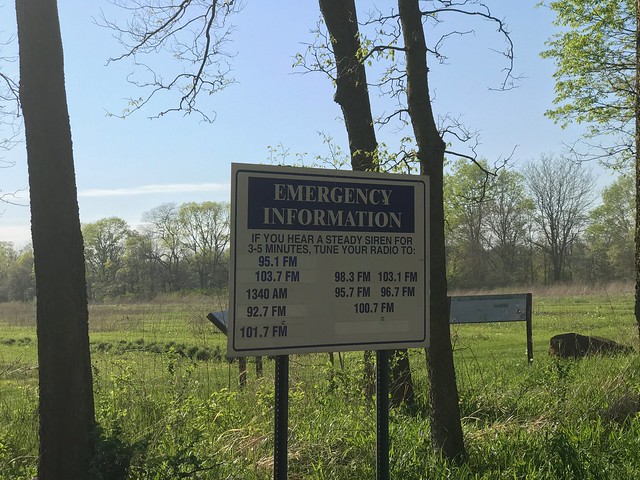
If you’re in the United States and you’re outside your home, chances are good you’re not too far from a sign. (It may be no more than the scrawled one taped to the office printer, “OUT OF ORDER. SERVICE CALLED.”)
Signs even lurk under your feet.
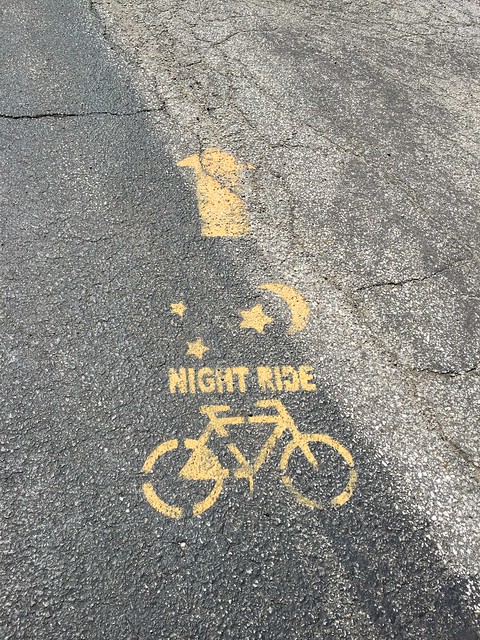
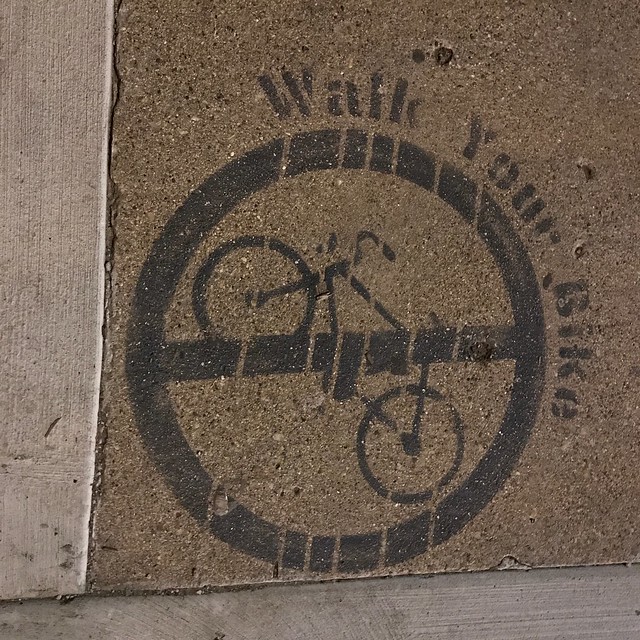
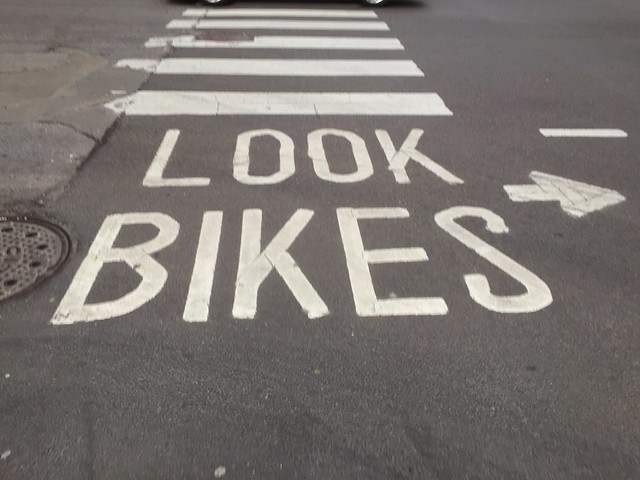
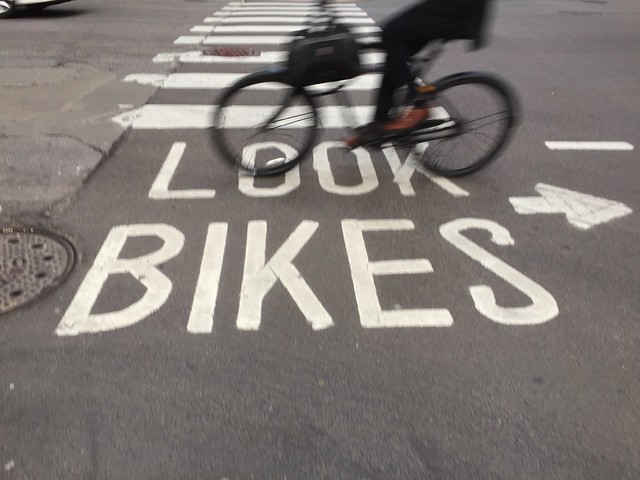
As we begin this journey at some point, remember:
